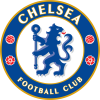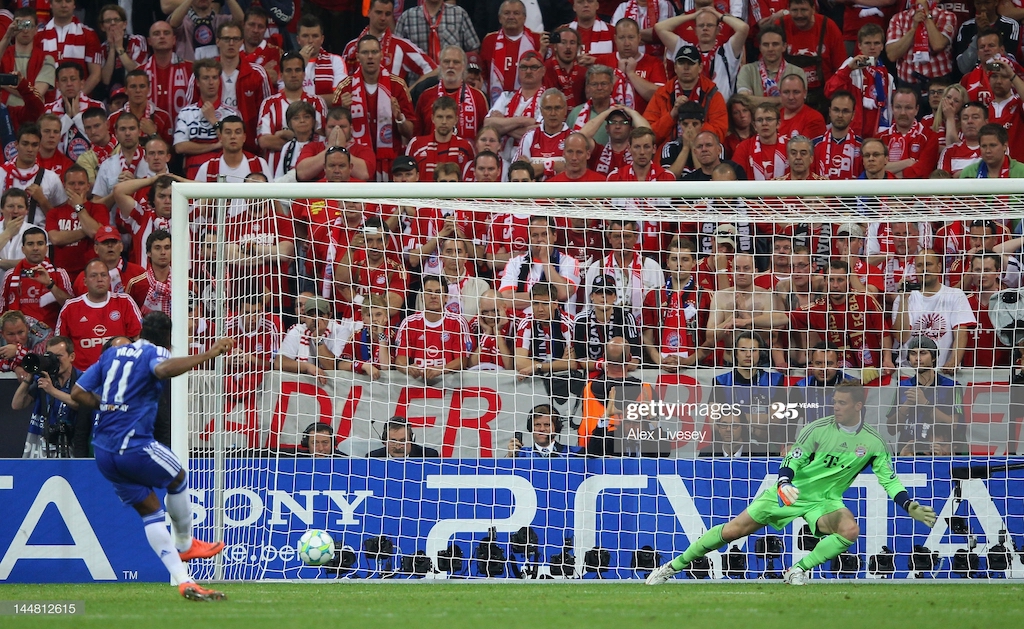Words by Jack Drury.
The UEFA Champions League looked to be heading for a long spell outside of England. With Manchester United being completely outclassed by Pep Guardiola’s Barcelona side in 2011, it looked as if the honour of becoming European Champions would be contested between the best of Spain, Germany and Italy.
After the first leg of the Round of 16 in 2012, it did not look like that was about to change. Only two English teams had made this stage this year, both from London. However, Arsenal trailed 4-0 to Milan, whilst Chelsea found themselves 3-1 down to the exciting Napoli.
The nightmare in Naples saw the end of Chelsea’s experiment with young coach Andre Villas-Boas. The promising Portuguese prodigy had struggled throughout his tenure in West London, with the Blues firmly outside the top four domestically.
Return of an old star
With a new project on the way out, the club turned to an old star. Roberto Di Matteo, the two-time FA Cup and European competition winning star of the 90s took the biggest in his short managerial career.
The first task was turning round the two-goal deficit when the Champions League returned to Stamford Bridge, where Di Matteo turned to his most experienced stars to try and turn things round, shown by those who scored those crucial goals. Didier Drogba. John Terry. Frank Lampard. Branislav Ivanovic. Four names who will go down in Chelsea history, getting the job done in front of a buzzing home crowd.
Next came Benfica. The first leg was just about the perfect performance you can give away from home, taking a lead and an away goal back to London. The second leg however brought nerves, with the Portuguese side forging a late comeback requiring a Raul Merieles piledriver to send Chelsea to the semi-finals again.
Up next, the familiar opponents of Barcelona. Lionel Messi, Alexis Sanchez, Cesc Fabregas. An all-star cast and one the Blues have a patterned history with. Every fan who attended the first leg in 2012 will remember the painful experience at the Bridge three years earlier, as Chelsea crashed out at the same stage with all the controversy and heartbreak that came with it.
Straight away, the better footballing team was evident. The Spanish side dominated the ball, hitting the woodwork early seeking the away goal. But the away goal didn’t come. Instead, a determined Ramires forced his way down the left-hand-side before squaring to Drogba, who gave the Blues the lead against the run of play.
The unimaginable happened...
Chelsea held on for another famous win, but what was about to follow was another level.
The Nou Camp was an intimidating place at the best of times, but when you are a goal down and a man down, the task becomes essentially impossible. Then Andres Iniesta put the hosts ahead on the night, and the Blues were in deep trouble.
On their only real venture into the Barcelona half saw Ramires played through, with his astonishing chip silencing the crowd, with Chelsea leading on away goals.
After this came the best part of an hour of backs-to-the-wall defending, with Petr Cech leading from example between the sticks. Just as it looked like they were about to cave in, substitute Fernando Torres, who remained deep in his struggles as a Chelsea man, rounded Victor Valdes to send the Blues to their second final.
Four years after their first, Chelsea again were one game away from glory. Last time they had fallen short on penalties, but this time it looked like even more of a challenge. Bayern Munich, arguably the greatest team currently about had the chance to write themselves into the history books in their own backyard, with the final taking place at the Allianz Arena.
Chelsea fans had every right to be fearful, especially after seeing the lineups. Ryan Bertrand was set to make his Champions League debut in the biggest game in the club’s history, the first moment of many where it looked like the historic road would finally end.
Fans may have feared the worst just minutes into the match, where Bayern dominated proceedings, Chelsea again struggling to even get out of their own half.
Fans may again have feared the worst when Frank Ribery turned a deflected shot into the net, only for the linesman’s flag to save Chelsea for now.
Without skipper Terry, the Blues defended resolutely, however the German side broke through with ten minutes to go, seemingly ending the fairytale.
The hour or so which followed Thomas Muller’s goal is indescribable. If it were a movie, the script would seem too perfect. But there truly was something in the air that night.
Drogba’s header is the club’s most famous goal. Cech denying Robben is the club’s most famous save. What followed was the club’s most famous moment.
Even with the perfect script, there was still the mishap the heroes had to deal with. Besides, penalties against the Germans was an impossible task, right?
Well, with Juan Mata missing the first kick, it did seem that way. All the way up until Cech denied a nervous-looking Ivica Olic before denying an even more nervous-looking Bastian Schweinsteiger, putting the Champions League within one kick. Although, of course, we have been here before.
Four years ago, Terry had the chance to secure the trophy for the side he loved from the spot. He stepped up after talisman Drogba was sent off during the game. This time the skipper was nowhere in sight, and the former African footballer of the year, who had already admitted he was on his way out, was the man trusted with the responsibility of delivering the club’s first Champions League trophy. And boy, did he deliver.
Queue ecstasy, excitement, joy, relief – a plethora of emotions. The parties went long into the night both in Germany and back home, the miracle of Munich was a reality.










































